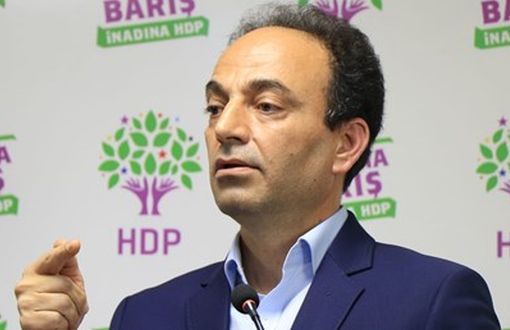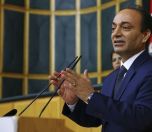Click to read the article in Turkish
The Constitutional Court has handed down its ruling regarding the application of Kurdish politician Osman Baydemir. The top court has concluded that Baydemir's right to assembly and demonstration and right to a trial within a reasonable time have been violated. Baydemir will be paid 30 thousand lira (approx. 32 thousand USD) in non-pecuniary damages.
'Stress and concern about being penalized'
In its ruling, the Constitutional Court has referred to its jurisprudence and noted that though Baydemir was not convicted, the possible resumption of his deferred prosecution in the future might keep him stressed and concerned about being penalized.
Referring to its previous rulings, the top court has concluded that there was an interference with freedom of expression.
According to the court, "keeping the applicant under control for a period of 3 years by deferring the prosecution needs to be considered an interference with his right to assembly and demonstration."
'Restriction must be the last resort'
As reported by daily Evrensel, the Constitutional Court has reiterated in Baydemir's case that "a measure that restricts basic rights and freedoms shall meet a social need and be the last resort to turn to."
The top court has recalled that "the instance courts might have a certain discretionary power in determining whether there is such a need; however, this discretionary margin lies with the Constitutional Court."
It has also underlined that Article 34 of the Constitution guarantees the right to assembly and demonstration so that opinions can be expressed without arms and attacks and in a peaceful manner.
The top court has also stressed that "the right to assembly and demonstration is among the most basic values of a democratic society."
'No intervention without a risk of violence'
The Constitutional Court ruling has further emphasized that the state shall display patience and tolerance in the face of the acts of people who gather for peaceful purposes that do not pose a threat to public order and do not involve violence in exercising their right to assembly and demonstration. It has noted that if the meeting is peaceful or if there is no danger of violence, an assembly and demonstration shall not be dispersed just because of the lack of a prior notification.
The ruling has said, "While it is indicated that slogans that praise the terrorist organization and the leader of the terrorist organization were chanted during the applicant's speech, the indictment brought no accusations about the aforementioned acts." The Court's ruling has noted that "no finding can be obtained as to whether the ones facing a public suit chanted illegal slogans or carried a banner that would constitute a crime."
"Measures and penalties shall not turn into indirect restrictions on the right to peaceful assembly. Individuals shall be protected from the arbitrary interference of the public authorities in exercising their right to assembly," the Constitutional Court ruling has read further.
What happened?
While Osman Baydemir was the Metropolitan Mayor of Turkey's Kurdish-majority southeastern province of Diyarbakır, the Central Office of the Democratic Society Party (DTP) decided to hold a peace march with the aim of making the truce permanent and stopping the operations. The march started from Diyarbakır and was to end in the capital Ankara in 2006.
As part of this demonstration, the DTP's mayors and members set off from Urfa to Antep in the southeast on December 16, 2006. A day later, a demonstration was held in Antep with thousands of people.
The Gaziantep Chief Public Prosecutor's Office indicted Osman Baydemir and 16 others for organizing, leading and joining an unlawful assembly and demonstration. A lawsuit was filed afterwards.
The Gaziantep 4th Criminal Court of First Instance ruled that Baydemir and other 14 defendants should be sentenced to 1 year, 3 months in prison each. The announcement of the verdict was deferred.
In the retrial pursuant to Baydemir's appeal did not change the result while the Court of Cassation later overturned the verdict, concluding that the prosecution should have been deferred.
Following this ruling of the high court, the court ruled that the trial of Baydemir, who was elected an MP and acquired legislative immunity, should be halted. The file was sent to the court again. The court complied with this ruling, ruled that the prosecution should be adjourned until February 13, 2018 and Osman Baydemir should be subjected to supervision.
After this ruling, Osman Baydemir applied to the Constitutional Court, saying that his freedom of expression and right to assembly and demonstration were violated. (AS/SD)







132.jpg)
